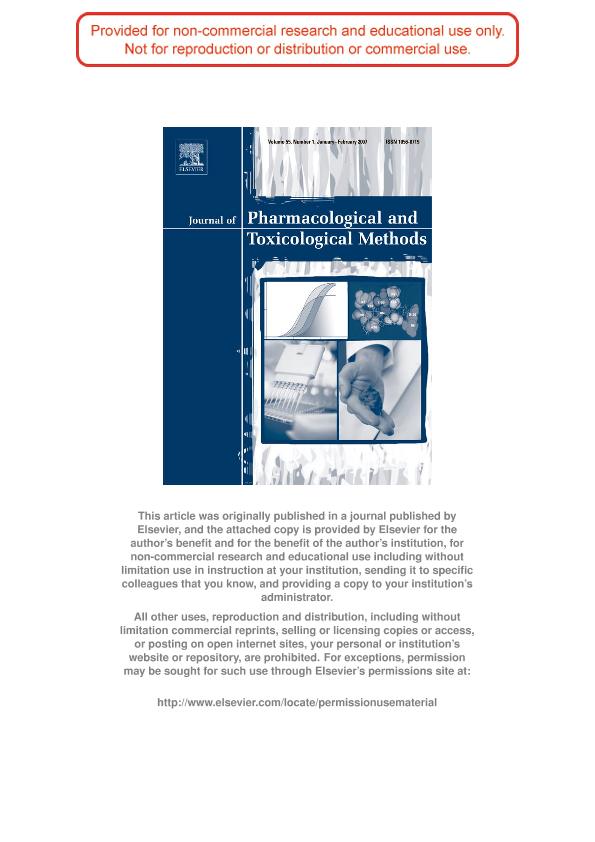Artículo
A panic experimental model: Validation of a complex operant behavioral method in undernourished rats, with desipramine to provide a template effect profile
Fecha de publicación:
02/2006
Editorial:
Elsevier Inc
Revista:
Journal Of Pharmacological And Toxicological Methods.
ISSN:
1056-8719
Idioma:
Inglés
Tipo de recurso:
Artículo publicado
Clasificación temática:
Resumen
Introduction: Clinical studies have shown that some antidepressants may be more efficient than benzodiazepines to alleviate anxiety associated with panic disorders; however, operant conflict procedures in rats developed so far seem not particularly able to model human anxiety sensitive to antidepressant treatments. Previous panic models with learned responses did not statistically subtract the effect of confounding factors from the variable of interest. Methods: Undernourished rats were selected due to their behavioral and neurobiological resemblance to human patients suffering from panic disorder. The Geller–Seifter paradigm represented the stressful environmental condition in adult life. Desipramine (10 mg/kg/day) or saline were administered IP during 7 days under a cross over design (N= 10). Five daily 15 min-operant sessions were carried out on each experiment. Unpunished, unrewarded and punished operant behavioral periods were identical both in their duration and in their reward system (the FR1 schedule) in order to measure response suppression, which has not been considered in previous studies with the Geller–Seifter paradigm. The dependent variable was the difference between comparable unpunished and punished periods. Results: A significant Diet × Drug interaction was observed in the dependent variable, which represented the level of “suppression/suppression release” induced by treatments. Discussion: Compared to control rats, deprived rats showed a significant and selective anticonflict effect of desipramine on the stressful and complex operant performance. The animal model of perinatally protein-deprived rats along with the Geller–Seifter's operant behavioral paradigm may represent a more sensitive approach to model human anxiety sensitive to antidepressant treatments by considering the combined impact of both early biological trauma and adult learned experiences under the same design.
Palabras clave:
Methodology
,
Pharmacology
,
Behavioral
,
Cognition
Archivos asociados
Licencia
Identificadores
Colecciones
Articulos(IDH)
Articulos de INSTITUTO DE HUMANIDADES
Articulos de INSTITUTO DE HUMANIDADES
Citación
Vigliecca, Nora Silvana; Molina, Silvia Cristina; Peñalva, Marisa Carola; A panic experimental model: Validation of a complex operant behavioral method in undernourished rats, with desipramine to provide a template effect profile; Elsevier Inc; Journal Of Pharmacological And Toxicological Methods.; 55; 1; 2-2006; 49-57
Compartir
Altmétricas




